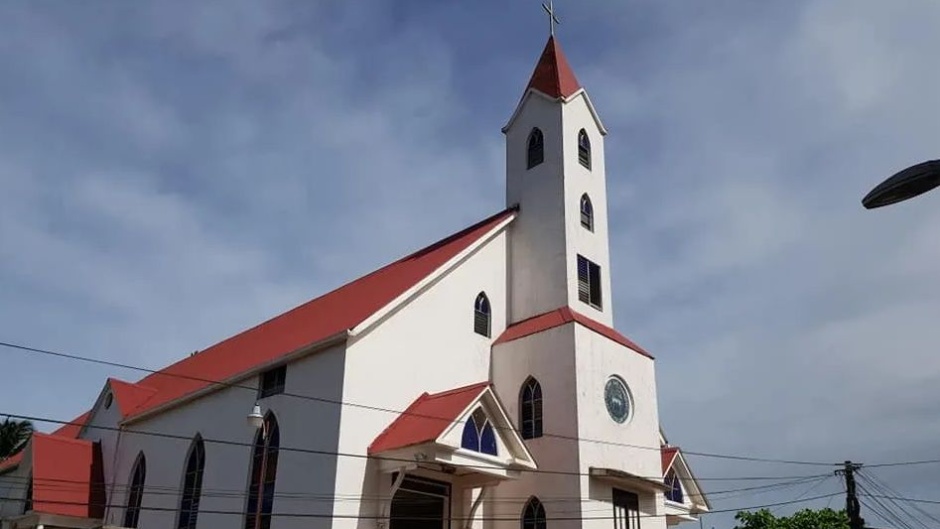Ortega shifts his anti-religious attacks to Nicaragua’s Protestant churches
Daniel Ortega’s objective is to cancel Nicaragua’s civil society including churches that refuse to be subservient to the regime.
25 JUNE 2024 · 12:00 CET

Nicaraguan dictator Daniel Ortega, who wages an ongoing war against the Catholic Church, is increasingly targeting Nicaragua’s Protestant churches.
Ortega is no stranger to Christianity. As a Catholic-educated young man, he led Bible studies in poor neighborhoods and briefly attended law school at the Jesuit-run Central American University.
An activist against the Somoza dictatorship, he spent almost a decade in prison for his role in a murder and bank robberies.
When the Sandinista (FSLN) movement took over Nicaragua in 1979, Ortega abandoned religion like other Marxist FSLN leaders.
Not surprisingly, the FSLN policy of atheism soon fell flat in overwhelmingly Christian Nicaragua just as it did in Cuba when Fidel Castro learned the largely Catholic population refused to put Marxism before God.
In a blatant ploy for electoral support, President Ortega publicly reunited with the Catholic Church in 2006 and slyly integrated “Christianity and Socialism” in campaign slogans and legislation.
In 2018, student-led protests led to a harsh government clampdown that continues today. Many Catholic churches provided shelter to student protestors. Ortega responded by jailing priests and looking away when followers attacked Catholic churches.
Then in 2019, Ortega and other family members were seen in staged photos praying with Protestant leaders, with his son confirming the family were now evangelicals.
Over the last six years, Ortega and his wife, Rosario Murillo, now his vice president, have shut down Catholic operations, confiscated church assets, imprisoned two bishops — one for over 500 days — and taken over Catholic schools, including the Central America University that Ortega once attended.
The Ortega regime is now listed by human rights defenders and the U.S. Department of State as one of the worst abusers of freedom of religion in the world, and along with Cuba, the two worst offenders in this hemisphere.
Showing no church is beyond his control, Ortega has cranked up the heat on Protestants, about 40% of the country’s population.
In recent years, the regime has closed 256 Protestant organizations among almost 4,000 civil society organizations shuttered nationwide.
Christian Solidarity Worldwide (now CSW) notes that Protestant churches are today treated like the Catholic Church, through restrictions on religious services, banned public activities, intimidation and interference with religious activities, planting of informants in congregations, and forced closure and confiscation of affiliated educational institutions and charities.
Ironically, despite well-documented repression of all religious institutions, four prominent Protestant leaders last month issued carefully-worded statements saying they were able to carry out church projects “without impediments.”
It is unclear whether the motivation for the statements was a “gun to the head” or government promises of special treatment.
However, these organizations should learn from the government’s treatment of the large U.S.-based ministry, Mountain Gateway, that had strategically declared it wanted to coexist peacefully with the Ortega government.
Following a massive two-day event with 300,000 followers from 1,300 evangelical churches across Nicaragua, the regime arrested 11 Nicaraguan pastors associated with Mountain Gateway.
After a sham trial, the pastors were sent to prison for 11-15 years and fined $1 billion. The government closed 10 of its churches and confiscated assets including vehicles and a farm.
The government’s charge was money laundering, which Mountain Gateway denies. But clearly the actual crime was the church’s popularity, having attracted one million attendees at religious rallies over the past year at a time when the FSLN is floundering.
Make no mistake, Daniel Ortega’s objective is to cancel Nicaragua’s civil society including churches that refuse to be subservient to the regime.
On behalf of my organization, I would urge renewed, high-level U.S. administration and congressional action and international advocacy to hold Ortega accountable for his campaign of human rights repression and unrelenting attacks on Nicaragua’s faith community.
Dr. Teo A. Babun is the president and chief executive officer of Outreach Aid to the Americas, a nonprofit religious organization dedicated to serving vulnerable communities in the American continent through humanitarian aid, development, and the defense of human rights.
He is the author of numerous books, the most recent being “Faith and Freedom in Latin America,” and has received multiple awards for his humanitarian work and advocacy for human rights.
This article was first published by the Washington Stand and re-published with permission.
Published in: Evangelical Focus - Latin American perspectives - Ortega shifts his anti-religious attacks to Nicaragua’s Protestant churches
